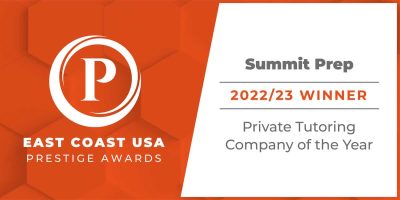The last year has brought many changes to college admissions. The extent and speed of these changes has made it more important than ever to turn to data analytics so that people can see what is actually happening and can respond accordingly – ideally before others so that Summit Prep families can use this information to their advantage. There are eight changes in college admissions (some recent but some others that started decades ago) that are driving more competition. We will examine these changes and how Summit Prep students and parents can use them to their advantage.
Eight Changes
1. Grade Inflation
From 1998 to 2016, the fraction of students with A-averages went from 38.9% to 47% (in all likelihood, now more than 50% of high school students in the U.S. have an A-average).1 But, grades 
2. Increased Cheating on Exams
In the February 14th, 2021, Freakonomics Radio Network podcast, “No Stupid Question,” Stephen Dubner (co-author of Freakonomics) and Angela Duckworth (author of Grit) discuss how cheating on school exams is epidemic during this pandemic. Or, as they say their kids say it: “Everybody is cheating.” West Point had its worst occurrence of cheating in over 40 years – and that 
3. Elimination of Class Rank
Most of the top public and private high schools have eliminated class rank.³ It didn’t seem fair that Student A in the top 20% of their class by class rank might look worse to admissions than Student B in the top 1% of their class at another school when Student A might simply be at a much more competitive school. But that elimination of class rank has taken away yet another data point that colleges can use when evaluating applicants.
4. Elimination of SAT Subject Tests
Only roughly the top 50 colleges were still using SAT subject test scores, but now those colleges will be looking elsewhere to replace the standardized metrics they just lost. Where will they look? To the standardized metrics that remain: SAT/ACT scores and AP exam scores.
5. More High Test Scores
Because the scale for the SAT has changed in the last decade, I used the ACT to chart the changes to students’ scores over time. The trend: More students are achieving top scores from 30 to 36, there are fewer students in the middle with scores from 18 to 29, and more students are scoring at the low end of the score range from 1 to 17.4
Specifically, there has been a 38% increase in the percentage of students scoring between a 1 and 17 on the ACT, a 21% decrease in the percentage of students scoring between an 18 and 29, and a 57% increase in the percentage of students scoring between 30 and 36. And, within the top score range from 30 to 36, the higher scores had larger percentage increases in the number of students achieving those scores. In just 10 years, there has been a 775% increase in the percentage of students with perfect ACT scores.
And this increase in top scores is accelerating. The result: With more students with more top ACT scores, students are competing for ever higher scores to maintain an advantage in college admissions.
6. More Applicants

7. Who Submits Test Scores
With the rise of test “optional” admissions, more students than ever before are choosing not to submit scores when applying for college. But who is choosing to still submit scores? According to the Common App, score submitting students are disproportionately from wealthy families.6 Students from wealthy families tend to attend better schools and be better prepared for standardized exams, so their higher standardized test scores make them more likely to submit those scores, and those higher scores increase their likelihood of getting accepted to colleges.
8. Who Gets In
Most schools, particularly the most selective ones (the top 200 schools), continue to emphasize testing as Cornell did in its most recent press release: although submission will remain optional this year at Cornell, SAT and ACT results “will continue to demonstrate preparation for college-level work,” and “applicants with no test results might more often be asked after review has begun for additional evidence of continuing preparation.”7 And the data on acceptance rates supports the advantage of submitting test scores. For example, Georgetown accepted students who 
Conclusion
Increasing grade inflation, increased cheating on exams, the elimination of class rank, and the discontinuation of SAT subject tests will all contribute to colleges more heavily considering a students standardized test scores, mostly SAT and ACT scores but potentially AP exam scores as well, particularly at the top colleges. At the same time, more top test scores and more applicants to top schools have increased the competition for better SAT and ACT scores. And, to no surprise, the top scoring students are more likely to submit their test scores and to be admitted to schools.
So what can students do to use these trends to their advantage? Because more students are getting top grades and top test scores and top colleges are getting more applicants, students can know in advance that they need to adjust their aim to hit their target. Grades and test scores are under a student’s control: with enough effort, most students can do exceedingly well in both. Although not fun to hear, it’s better to know now that we might need to increase our effort than to find out later that it was not enough.
But students and parents are not alone in the process: we are here to help. We put in the hard work with students to help them achieve top grades and top SAT and ACT scores and to provide the best college counseling to help families successfully navigate the changing college admissions process.
Works Cited:
- Buckley, J., Letukas, L., & Wildavsky, B. (2018). Measuring Success: Testing, Grades, and the Future of College Admissions. Johns Hopkins University Press. (pages 69-79)
- West Point Cheating Scandals
- Class Rank and Admissions
- ACT Annual Reports: 2020, 2018, 2016, 2014, 2012, and 2009
- Surging Application Numbers
- Students from wealthy families submit test scores at higher rates
- Students asked to provide context for not submitting scores
- Admissions advantage for students who submit test scores
- Additional admissions advantage for students who submit test scores
Detailed Changes to Every ACT Score Over the Last Decade








